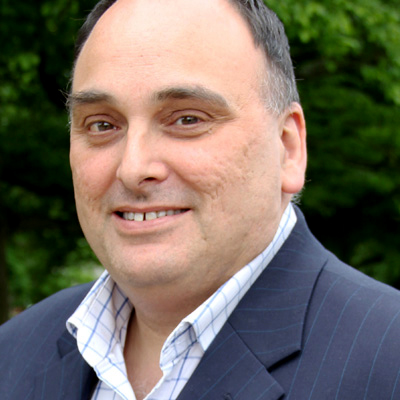
Ifti Majid
Chief executive
Derbyshire Healthcare NHS Foundation Trust
Ifti holds a nursing qualification and a postgraduate management qualification with a focus on business process design. Before becoming chief executive at Derbyshire Healthcare NHS Foundation Trust, Ifti held various clinical posts in adult mental health services including community mental health team clinical lead.
Q: Was there a particular job, opportunity or experience which convinced you to apply for the chief executive role?
The role where I realised I wanted to move into more strategic leadership was some 16 years ago as a lead clinician for a community mental health service. I recognised that I wanted to influence care delivery but to do that for more than just the person sat in front of me or for those people on my caseload. This sense was enhanced by a leadership programme I attended that provided me for the first time with a leadership coach which gave me the confidence to put my head above the parapet and get involved in some trust-wide pathway design work. It was a turning point in my career that set my career path into operational management then into strategic leadership (board-level leadership posts) some eight years ago.
Q: How does your clinical background help you to perform effectively as a trust chief executive?
My clinical background brings with it an in-depth knowledge of the sector I operate within, it means that I not only understand the services within the sector but understand them from having worked and navigated them as a clinician. This knowledge has given me vital credibility with staff, commissioners and the public. I have also found that my clinical background gives me a confidence in interacting with people who use our services when they are at their most unwell which is a very important way of hearing about how it feels to use services. As a chief executive we have a leadership role in setting strategy, organisationally and within the health and social care system, my clinical background helps me to ground that strategy in focusing on quality improvement and innovation. My development from clinician to strategic leader has helped me to influence our workforce strategy, to be accessible and meaningful to colleagues starting off in their career development, as well as meeting more strategic requirements.
My clinical background brings with it an in-depth knowledge of the sector I operate within, it means that I not only understand the services within the sector but understand them from having worked and navigated them as a clinician.
Q: What do you think is more important for your performance as a trust chief executive – the background you have or the person you are? Why?
One of the core roles of a chief executive is about setting or creating the tone and culture of the organisation, and developing and living values that support the culture. I think this is something that is driven by the person you are as a chief executive, your own beliefs and values and what drives and motivates you. I don’t believe it is possible to separate that from your background because those things will have influenced the career path you have taken. I do think that that your background will influence the narratives and stories you use in setting culture and that will have a significant influence on performance, in particular the connectivity within the organisation and how much colleagues at all levels buy into the strategy you set.
Q: What are the challenges you’ve faced balancing your priorities as a clinician and your responsibilities as a trust chief executive? How have you overcome these?
For me, those challenges tend to occur around responding to national priorities when they don’t match up to my experience, expectations or beliefs. For example, priorities focused on short-term tactical improvements rather than a passionate belief I developed from being a clinician around prevention. In addition, when working strategically in a system if the focus doesn’t adequately reflect the needs of the population you serve, this can be a challenge and frustration.
The answer to these challenges for me lies with furthering my involvement at a national level, where opportunities arise getting involved in policy setting and development, as a chief executive this is an opportunity open to me and helps to feel my voice has been heard, even if the outcome might not exactly match my expectations.
One of the core roles of a chief executive is about setting or creating the tone and culture of the organisation, and developing and living values that support the culture. I think this is something that is driven by the person you are as a chief executive, your own beliefs and values and what drives and motivates you.
Q: Have you considered maintaining clinical practice alongside your chief executive responsibilities? And why/why not?
This is something I have considered from time to time and something that clinicians have occasionally asked me. It is very practical reasons around competence and continuity of care that have led to me not maintaining clinical practice. I worry that I would not be able to offer the continuity of care needed nor be responsive enough to patients the way I operate my diary as a chief executive, though I do recognise some do it successfully. In addition, I personally worry I wouldn’t be able to commit the clinical time needed to be assured of my own level of clinical competence.
